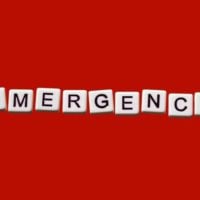Deadline: 7-Sep-22
The European Commission (EC) is pleased to announce a call for proposals to support the creation of a virtual European Cancer Patient Digital Centre (ECPDC), which is a federated network of patient controlled (national) health data infrastructures enabling the voluntary exchange of patients and survivors’ health data in a standardised approach, for primary and secondary use.
The overall goal of the Mission on Cancer and the Europe’s Beating Cancer Plan includes a better quality of life for patients and their families living with, and after, cancer.
Proposals should address the existing challenges and develop a roadmap towards the creation of the ECPDC as a virtual, federated network of national infrastructures of patient-controlled health data (‘national or regional nodes'), taking into account synergies with the future UNCAN.eu platform, integrated within a larger European network of infrastructures, to which each Member State should have a single access portal.
The proposals should draw on existing expertise at the EU and national level and on EU- and Member State/Associated Country-tailored procedures for access, use and re-use of patient data. Moreover, synergies with the European Network of Cancer Registries should be established to ensure the ECPDC will create an ecosystem on knowledge of cancer. It could also include a call centre function.
Funding Information
The check will normally be done for the coordinator if the requested grant amount is equal to or greater than EUR 500 000, except for:
- public bodies (entities established as a public body under national law, including local, regional or national authorities) or international organisations; and
- cases where the individual requested grant amount is not more than EUR 60 000 (lowvalue grant).
Activities
Accordingly, proposals should cover all of the following activities:
- Actively engage and facilitate assessment of relevant existing patient-controlled health data networks at the EU and Member State/Associated Country level, to assess how the ECPDC will integrate and interact with existing national care pathways and the IT systems. A multidisciplinary team, including also users such as patients, care professionals and researchers, should be involved in the development of the proposed federated network.
- Develop a roadmap outlining the necessary intermediate steps towards the creation of the federated network of national health data infrastructures, including technical requirements, governance aspects and timelines.
- Design and perform a testing phase of the network before its release, allowing the adjustment of its tools/functionalities, validate the proposed approach and inform on how it could be scaled and sustained.
- Analyse and provide solutions for extraction of health data, e.g. from the electronic health records, genomic databases (e.g. 1+MG), the Cancer Imaging Initiative and the future Cancer Survivor Smart-Card. Data protection rules should be taken into account.
- Analyse and provide solutions for cross-border transfer of personal data and options to access and store patient data, taking into account the eIDAS, GDPR, other EU and national legislations, and the integration of the ECPDC within the European Health Data Space.
- Establish robust communication and effective information exchange between diverse actors such as cancer patients and survivors, formal and informal caregivers, policy makers and researchers.
Expected Outcomes
To that end, proposals under this topic should aim for delivering results that are directed, tailored towards and contributing to all of the following expected outcomes:
- Citizens, including cancer patients and survivors, are able to donate, access and manage their own clinical data, including patient-reported outcomes (PRO), and have control over the access to these data in a secure, standardised, ethical and interoperable manner.
- Citizens, including cancer patients and survivors, their families and caregivers have access to and use the ECPDC as a global centre of knowledge on cancer, including on prevention, diagnosis, treatment guidelines, treatment side-effects, access to cross-border health care, psychosocial and legal support, including guidance and support on returning to work, addressing financial issues and asserting survivors’ rights.
- Tools are provided to clinicians allowing them to collaborate with patients to develop the best methods of care and personalized treatments regardless of their location.
- Citizens, including cancer patients and survivors, receive information on personalised care through the ECPDC, which monitors data trends and provide insights on treatment side effects and other outcome measures based on standardised patient-reported outcome and experience measures, by aggregating and analysing large data sets using state-of-the-art secure cloud computing and data analytics and visualisation methods and tools, including AI.
- Citizens, including cancer patients and survivors, are empowered in co-deciding on their care as well as in participating in research. The rights of patients are reinforced and their confidence in sharing their data for cancer research, innovation and policy development is increased.
- Researchers, citizens, including cancer patients and survivors, and policy-makers have access to a valuable resource of aggregated patient data that are evolving over time, to correlate different sources of information and whereby disease trajectories of patient’s and survivor’s health could be inferred. This will improve the knowledge and understanding of cancer and its impact on the lives of citizens, including cancer patients and survivors, thus contributing to the development of improved diagnostics, treatment, care and quality of life support and to the development of policies.
Eligibility Criteria
To be eligible for funding, applicants must be established in one of the eligible countries, i.e.:
- the Member States of the European Union, including their outermost regions;
- the Overseas Countries and Territories (OCTs) linked to the Member States;
-
eligible non-EU countries:
- countries associated to Horizon Europe
- low- and middle-income countries.
For more information, visit European Commission.
For more information, visit https://bit.ly/3LIjt2W









































